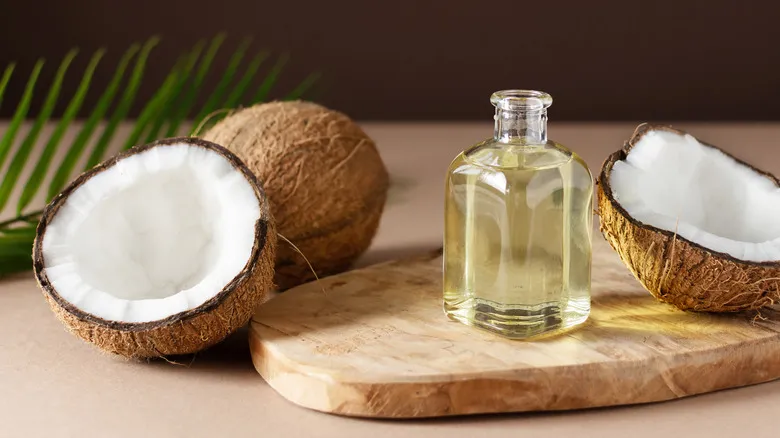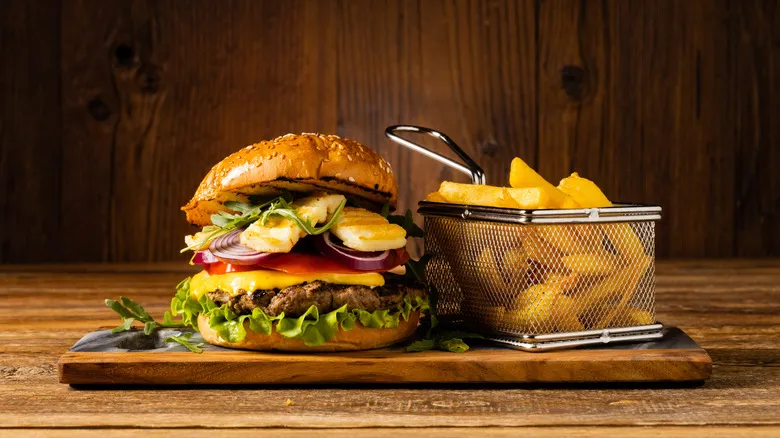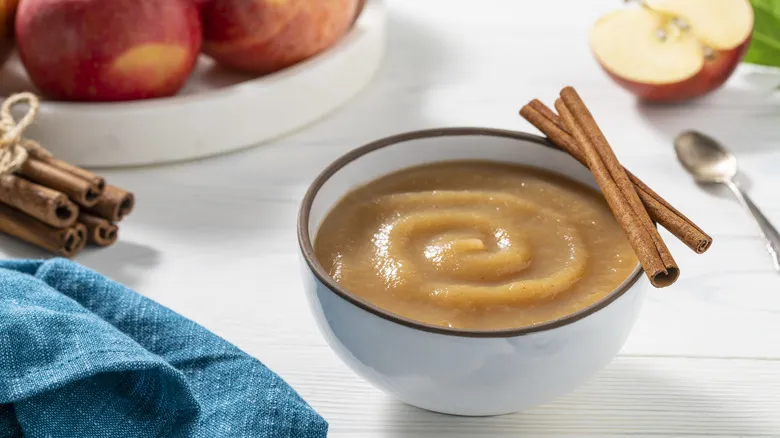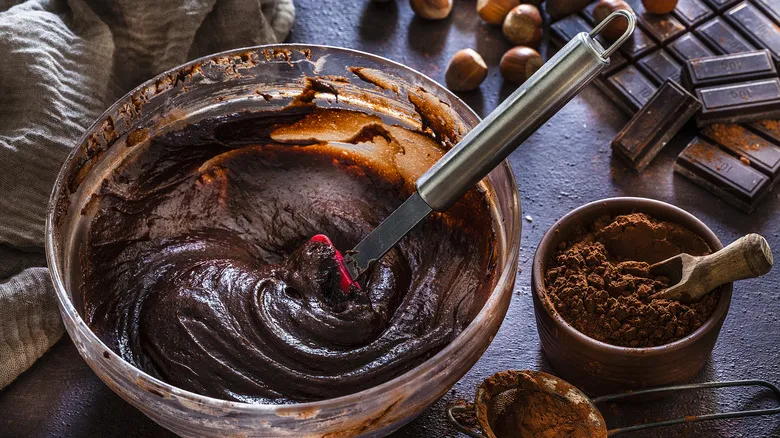Coconut oil is almost pure fat

If you love crunchy cookies, coconut oil is likely to become your new go-to ingredient. Unlike dairy butter, which contains about 80% fat, coconut oil is almost entirely fat—around 99%, according to the USDA. This low moisture content results in cookies that come out of the oven dry and crumbly, providing a much crispier texture compared to those made with regular butter.
However, this dryness can also be a downside. The lack of moisture makes the dough quite stiff, preventing it from spreading much during baking. You'll notice this when you first try using coconut oil. To avoid ending up with uneven lumps in your cookies, you may need to shape the dough by hand before baking. While they will taste great, you might not want to present misshapen cookies if you're planning to share them with friends and neighbors.
The good news is that you can easily fix this by adding a tablespoon or two of liquid—either water or milk—to the dough. This will help rehydrate the flour, making it easier to shape and allowing the cookies to spread more evenly on the baking sheet!
Keep note of the type of coconut oil you're buying

As you explore the different bottles of coconut oil in grocery store aisles, you'll encounter two primary varieties: unrefined (or virgin) coconut oil and refined coconut oil. It's important to choose carefully between them, as each type significantly influences the flavor of your cookies.
Virgin coconut oil is derived from fresh coconut meat and undergoes minimal processing. True to its name, it boasts a robust coconut flavor and aroma. If you're looking to create coconut-flavored cookies, such as Samoas (which are arguably some of the best Girl Scout cookie flavors), virgin coconut oil is your best bet. Conversely, if you plan to infuse your cookies with other flavors (like orange zest chocolate chip) and want to avoid the coconut taste overshadowing these flavors, refined coconut oil is the better option. This oil is extracted from dried coconut meat and processed to remove its nutty flavor and scent, resulting in a neutral oil that adds only fat and binding properties to your recipe.
When using coconut oil as a substitute for butter in your cookie recipe, deciding between unrefined and refined is the extent of the complexity you'll face. Given how straightforward this choice is, it's easy to see why coconut oil is a favored option among bakers. If you give it a try, it might just become your favorite too!
Recommended

Top Your Next Burger With A Slice Of Cheese That's Also Perfect For Grilling

Risky Baking Shortcuts That Are Not Worth Your Time

What Makes Applesauce A Great Oil Substitute In Baking

Your Boxed Mix Cake Will Taste Like Heaven With One Simple Swap
Next up

